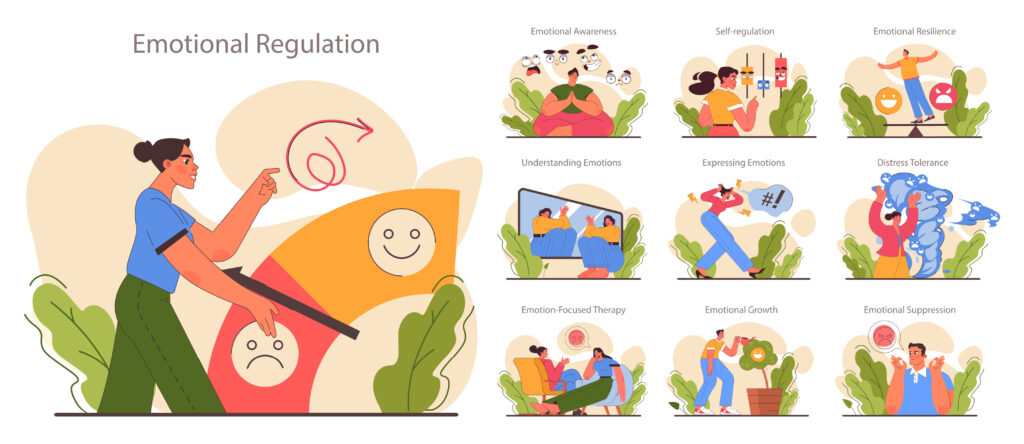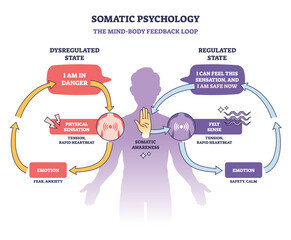As a mental health counselor, I teach my clients various techniques and strategies to help them regulate their emotions effectively. Here is a guide on how you can work on regulating your emotions to help you manage the stress we experience when we are angry, overwhelmed, insecure, discouraged, and anxious:
- Emotion Awareness: Start by becoming aware of your emotions. Identify and label what you’re feeling. This self-awareness is the first step in managing emotions.
- Accept Your Emotions: It’s essential for us to understand that all emotions are valid. Don’t judge yourself for feeling a certain way. Emotions are a natural part of human experience and remember feelings are fleeting, and not facts.
- Identify Triggers: Learn to recognize the specific situations, thoughts, or people that trigger intense emotions. Understanding these triggers can help you develop strategies to manage your responses to these triggers.
- Cognitive Restructuring: Work to challenge and reframe negative or irrational thoughts that contribute to overwhelming emotions. Replace unhelpful thought patterns with more balanced and rational ones.
- Emotion Regulation Strategies: There are various techniques for managing emotions, such as:
- Deep Breathing: It helps calm your nervous system when feeling overwhelmed.
- Progressive Muscle Relaxation: Relaxing your body through systematic muscle relaxation techniques.
- Mindfulness and Meditation: Develop a mindfulness practice to stay present and reduce emotional reactivity.
- Emotional Expression: Express your emotions in a healthy way, such as through journaling, art, or talking with a trusted friend.
- Positive Self-Talk: Use positive and self-compassionate self-talk to counter negative thought patterns.
- Grounding Techniques: 5 senses awareness, body scan, tense and release, bilateral tapping, humming, to name a few.
- Visualization: Use visualization to imagine a safe, calming place during moments of stress.
6. Stress Management: Use effective stress management techniques, including time management, setting boundaries, and prioritizing self-care.
7. Healthy Lifestyle: Maintaining a balanced diet, regular exercise, and adequate sleep all play a significant role in emotional regulation.
8. Assertiveness and Boundaries: Learn assertiveness skills and set healthy boundaries in your personal and professional relationships. This can prevent situations that lead to emotional overwhelm.
9. Problem-Solving Skills: Find ways to address the underlying issues contributing to your emotional distress. Focus on solutions and avoid focusing on the problem.
10. Self-Compassion: Treat yourself with the same kindness and understanding you’d offer a friend.
11. Positive Coping Strategies: Engage in enjoyable hobbies, connect with supportive people, or seek professional help when needed.
12. Homework and Practice: Practice these techniques in your daily life to reinforce the skills needed during times of stress.
Remember that regulating emotions is a skill that takes time to develop. Be patient and empathetic with yourself and celebrate the progress along the way. Everyone’s journey to emotional regulation is different.




